
These Books Made Us Feel So Seen
I love to read for so many reasons. I love to read horror because of the thrill it gives me, that little frisson of what-if. I love works of memoir and narrative journalism because they often give me a glimpse into experiences that differ from my own. I love comedic works, both fiction and nonfiction, purely for the belly laughs. I love all of it because I love to get lost in lives that take me away from my own.
But then there is a different class of books, ones that mirror my own experience so closely that I feel as if the author has crawled inside my head and lived my life with me, felt my feelings, thought my most dark and bizarre thoughts.
There’s just something about a book like that… something that makes you want to hold it close because it makes you feel less alone.
When books makes me feel that seen, I like to keep them around. Because, during difficult times, it can feel good to reread them, just to experience that level of comfort that comes with the familiar.
Because I contain multitudes, I have a number of books on my shelves that make me feel like that. And yes, most of them are memoirs, but there are also a couple of essay collections and even one wacky novel.
And because this isn’t the Steph Auteri show, I’m also sharing some of the books that make my fellow Book Rioters feel seen, too.
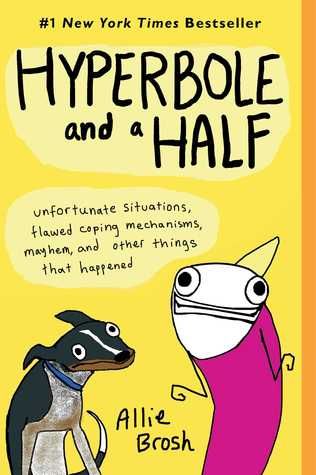
Hyperbole and a Half by Allie Brosh
I mention this book all the time and it’s because it makes me feel like less of a weirdo. Or rather, it makes me feel like I’m not the only one. Quick recap: This book is a humor memoir that grew out of Brosh’s webcomic/blog. It tackles everything from laziness to adulting to depression in a way that makes me feel that perhaps I wrote the book myself while in a fugue state? A childhood marked by a sugar obsession so strong I hid containers of frosting under my bed? It’s me. An adulthood marked by a complete lack of self-motivation? It’s me. Debilitating depression and self-loathing? Also, sometimes me. I occasionally reread this book and, every time, the connection I feel to Brosh takes my breath away. Her stories also make me laugh so hard I end up crying. For the love of all that is holy, read the damn book.
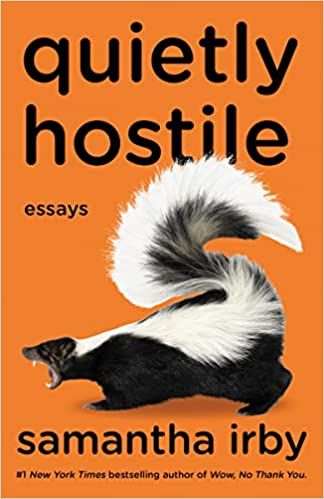
Quietly Hostile by Samantha Irby (May 16)
I mentioned this one recently, too. Mostly because Irby’s experience with growing older so closely mirrors my own. In this comedic essay collection, Irby writes about incontinence, exhaustion, eating habits, aches and pains…all the things I, too, grapple with on the daily. The way she portrays the reality of edging deeper into your early 40s — that cognitive dissonance that occurs when you still feel like an incompetent child even though you’re old enough to have pushed an incompetent child out of your own vagina — is so pitch-perfect.
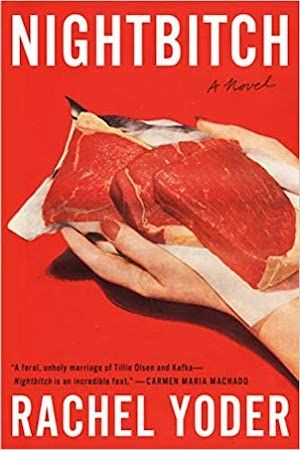
Nightbitch by Rachel Yoder
In this domestic satire, our protagonist retreats from her career and takes on the role of primary caregiver while her husband is away for work five days a week. It takes its toll. She lurks on the edges of the local mommy-and-me activity groups, not feeling that she belongs. She wears the same lounge pants seven days in a row and allows her hair to grow wild and greasy and untamed. She begins to grow a pelt of coarse hair on the back of her neck, to slink around the neighborhood on all fours, to seize small animals in her jaw, to howl at the moon. This poor mother is without a support system, without an outside identity, and in the wake of the anger and resentment that build inside of her, she eventually turns feral. In transforming her protagonist into a wild, raging animal, Yoder taps into a side of the motherhood experience we often turn away from. As someone who struggled with postpartum depression, who buried her anger because — after years of infertility issues — I was supposed to be happy, dammit, I really appreciated Yoder’s take on new motherhood.
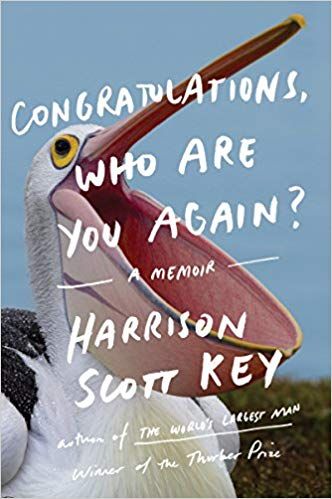
Congratulations, Who Are you Again? by Harrison Scott Key
This hilarious memoir about pinpointing and eventually achieving your dreams doesn’t pull any punches. In Key’s characteristic, comical way, he lays out the ugly truth — the immense letdown — of what it’s like to finally do or be or have the thing you’ve been wanting your entire life. Sure, it’s not all bad. In fact, it can often be amazing. But it can also definitely be an emotional rollercoaster. I read this book shortly after my own book came out, when I was stranded firmly in the muck of that post-publication malaise. I was floating along in an overwhelming haze of What now??? and, at the very least, Key made it possible to laugh about it all.
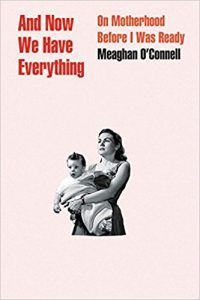
And Now We Have Everything by Meaghan O’Connell
Most of the books above really bring the LOLs. I guess I connected to them so hard because I, too, use humor as a coping mechanism. But this memoir of new motherhood after an unplanned pregnancy was more earnest, and I couldn’t help leaning into that. O’Connell is raw and honest and I especially connected to her descriptions of the inherent fear that comes with motherhood, a fear that is all-consuming, no matter how lucky you feel about having kids. As someone who feels continuously constrained by her own anxiety, this mom-specific fear is definitely something I relate to.
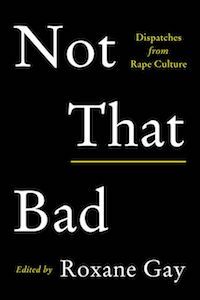
Not That Bad Edited by Roxane Gay
tw: rape, sexual violence, sexual harassment
Back when I was giving interviews to promote my own book, a reported memoir on female sexuality, I found myself name-dropping the title of this anthology a lot. In the collection, writers give testimony about how they’ve been touched by rape culture. The title is brilliant in the way it references how so many of the contributors — and so many victims of sexual violence and/or harassment in general — tell themselves that the thing they experienced was not that bad. As someone who writes about sex for a living, often weaving in her own personal stories, I am constantly grappling with the question of whether my story even matters.
And on to my colleagues…
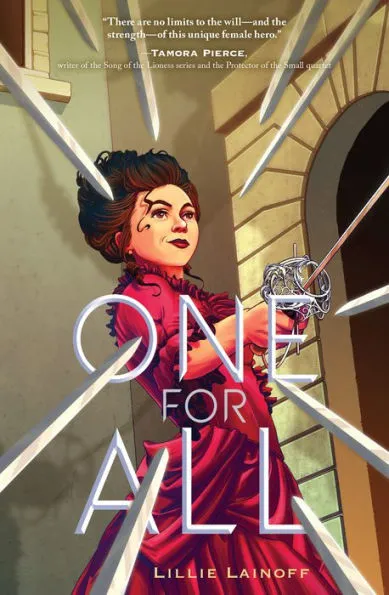
One for All by Lillie Lainoff
Postural Orthostatic Tachycardia Syndrome (POTS) is a fairly common chronic illness affecting approximately 1–3 million Americans, yet it’s rarely depicted in media. I’ve had POTS since I was a preteen, though I wasn’t diagnosed until my 20s, a common problem for people, especially women, with POTS. One for All is the first traditionally published book with a protagonist who has POTS, and it’s written (and narrated on audio) by a fellow POTSie. It’s such a fun book, and so wonderful to finally see POTS, and my own experiences, depicted in a novel! It’s a gender-bent YA retelling of The Three Musketeers, and it’s an absolute, empowering blast. —Margaret Kingsbury

The Collected Schizophrenias by Esmé Weijun Wang
When I was first re-diagnosed as having schizoaffective disorder (SZA) bipolar type instead of just bipolar disorder, I was so lucky that Esmé Weijun Wang had just released a collection of essays about her experience with SZA bipolar type. Reading Wang’s The Collected Schizophrenias gave me the courage to keep going as I eased into a new reality. From fashion to college, Wang’s essays touched on common threads in my own life. I was so happy to know I’m not all alone. —Sarah S. Davis
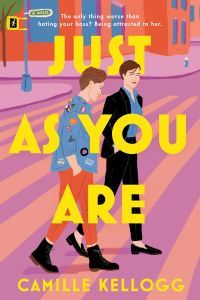
Just As You Are by Camille Kellogg (April 25, Dial Press)
I’ve never read a book that so honestly and relatably explores being a queer woman in your 20s, from queer community and friendships to exploring gender presentation and so much more. This book is a Pride and Prejudice retelling set amongst the writing team at a queer website, where Pride pool parties take the place of society balls and a tall, handsome, rich lesbian plays the role of Mr. Darcy. The part that most spoke to my soul, though, was the protagonist grappling with the value of writing and reading queer “fluff” novels and celebrating seeing yourself in joyful books. (Talk about meta.) —Susie Dumond
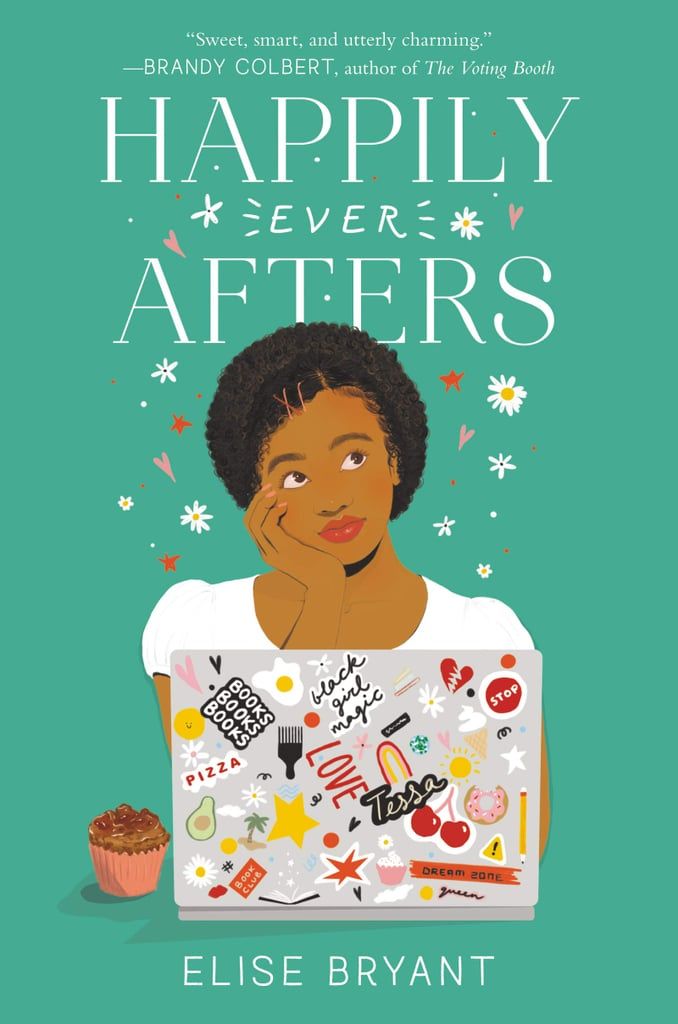
Happily Ever Afters by Elise Bryant
I’ve waxed so much poetry about this book and how it is arguably the first book where I saw myself in my entire life. And it just came out in 2020. Tessa was everything I was at a young age. She was mixed like me, she was a romance novel lover as well as a writer. I even had a beta reader, too, that read all my romances after I typed them up on my Brother Word Processor. Now there were some differences, such as being the eldest and having more hair confidence than I did. But otherwise, I felt like I was reading me as I tore through the book, albeit an AU me since Tessa was way more positive than I was or currently am. It’s really hard to explain how much this book means to me and that connection is why Bryant is one of my go-to auto-buy YA authors, hands down. —P.N. Hinton
Of course, if you don’t want too-close-for-comfort realness, you could always escape reality with these 20+ books.











